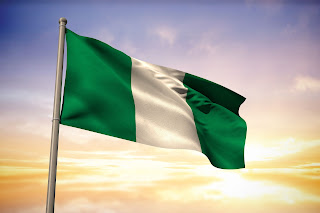Nigerian Culture and Traditions That You Should Know About
Nigeria is a diverse country with over 250 ethnic groups and 500 languages. This diversity is reflected in the country's rich culture and traditions.
Nigerian culture is a blend of traditional African culture and Western influences. The country's traditional culture is based on a strong sense of community and family. Nigerians are also known for their hospitality, their love of music and dance, and their vibrant fashion sense.
Here are some of the most important Nigerian cultural and traditional practices that you should know about:
1. Greetings
Greetings are very important in Nigerian culture. When meeting someone for the first time, it is customary to shake their hand and say "Hello." You may also want to say "Good morning," "Good afternoon," or "Good evening," depending on the time of day.
If you are meeting someone older than you, it is respectful to bow or kneel down when greeting them. You may also want to call them "auntie" or "uncle," even if they are not related to you.
2. Family
Family is very important in Nigerian culture. Nigerians are close-knit and extended families often live together. Elders are respected and children are taught to be obedient.
There are many different types of families in Nigeria, including nuclear families, extended families, and polygamous families. Nuclear families are made up of a husband, wife, and their children. Extended families include grandparents, aunts, uncles, cousins, and other relatives. Polygamous families are made up of a man with multiple wives and their children.
3. Marriage
Marriage is a sacred institution in Nigerian culture. It is seen as a union between two families, not just two individuals.
Traditional Nigerian weddings are elaborate and expensive affairs. They can last for several days and involve hundreds of guests.
4. Food
Nigerian food is known for being flavorful and spicy. Popular dishes include jollof rice, egusi soup, and pounded yam.
Nigerians typically eat three meals a day: breakfast, lunch, and dinner. Breakfast is usually a light meal, such as bread and tea. Lunch is the main meal of the day and often consists of a variety of dishes, such as rice, soup, and meat. Dinner is usually a smaller meal than lunch and may include leftovers from lunch or a simple dish such as bread and stew.
5. Music and dance
Music and dance are integral parts of Nigerian culture. There are many different types of Nigerian music, including traditional music, pop music, and hip hop.
Nigerians love to dance and there are many different types of Nigerian dances, such as the azonto, the shoki, and the shaku shaku.
6. Fashion
Nigerians are known for their sense of style. Nigerian fashion is a mix of traditional and modern influences.
Popular Nigerian fashion items include the agbada, the buba and wrapper, and the kaftan.
7. Religion
Religion is very important in Nigerian culture. The majority of Nigerians are Christians or Muslims.
There are many different Christian denominations in Nigeria, including the Catholic Church, the Anglican Church, and the Pentecostal church.
Islam is the dominant religion in Northern Nigeria. The majority of Nigerian Muslims are Sunnis.
8. Festivals
Nigerians love to celebrate and there are many different festivals throughout the year. Some of the most popular Nigerian festivals include the Christmas festival, the Ramadan festival, and the Eid al-Fitr festival.
Conclusion
Nigerian culture is rich and diverse. It is a blend of traditional African culture and Western influences. Nigerians are known for their hospitality, their love of music and dance, and their vibrant fashion sense.
If you are ever visiting Nigeria, be sure to learn about the country's culture and traditions. This will help you to have a more enjoyable and respectful experience.
Here are some additional tips for understanding and respecting Nigerian culture:
- Be respectful of elders.
- Dress modestly.
- Be aware of body language.
- Be patient and understanding.
- Don't be afraid to ask questions.
Nigerians are a friendly and welcoming people. If you are respectful of their culture and traditions, you are sure to have a wonderful time in Nigeria.








.png)



Comments
Post a Comment